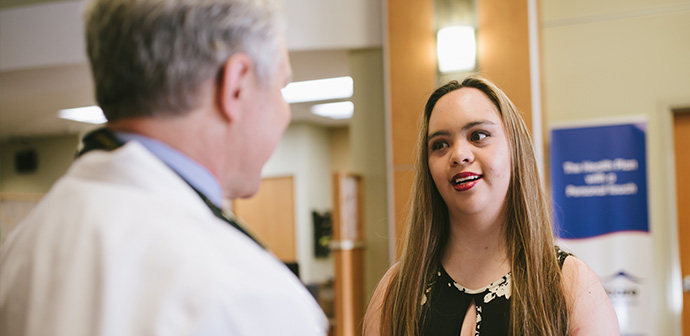
Resolving inflammation: Could it prevent memory loss in Down syndrome and Alzheimer's?
March 13, 2020
Individuals with Down syndrome are at a much greater risk of developing Alzheimer's disease, with inflammation of the brain starting early in life and the risk of Alzheimer's reaching nearly 80% by the age of 60.The root cause of Alzheimer's disease is unknown. However, its frequency...
Read More






